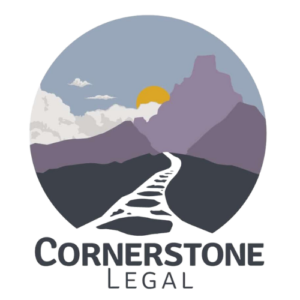It’s important to avoid Probate Administration of your estate and secure it with a Living Trust. I bet your mom would agree with me AND the three reasons I’m giving. Did your mom ever tell you: Don’t tell everyone your secrets! Prepare for your future! Save your pennies! If she did, she was onto something with these words of wisdom. These general life principles she was instilling in you also come into play when you are creating an Estate Plan. If you don’t plan it right, your estate will go through Probate Administration and all your laundry (clean or not) will be left out to dry for the whole neighborhood to see. And it will cost your loved ones more money than if you would have set it up properly from the beginning. Their time will be wasted in court. And their access to your assets will be delayed waiting to GO to court!
What is Probate Administration?
Probate Administration is the collecting, managing, and distributing of someone’s assets when they pass away. This is not a private process and involves the Probate Court, along with its rules and timeline. To keep your secrets on your own time with less expense, it’s important to avoid Probate Administration of your estate and secure it with a Living Trust.

Let’s explore the Three Reasons you want to avoid Probate Court and secure your future with a Living Trust:
PRIVACY
You may have also heard your mother say “everybody doesn’t need to know your business” as she looked after your best interest. If that voice still rings in your head, a Living Trust helps keep a lid on your Estate Plan during administration. Every required document that is filed in Probate Court is a public record. That’s why it’s important to have a Living Trust. It permits you to keep the administration of your estate private, something that cannot be maintained with Probate Administration. Once you sign your Living Trust, you are not required to record the documents or file them with the Probate Court. Ways a Living Trust maintains your privacy are:
- It’s not required to be recorded or deposited with the Court. It’s kept out of the public eye!
- You can keep it to yourself! You keep your originals. Be sure to store them in a secure place and only give access to the people you have appointed and trust.
SAVINGS
Probate administration can be costly: court fees, legal fees, recording fees, professional fees, publication fees. How costly can it be? According to www.acaadviser.com, 3%-8% of assets are spent on the average Probate Administration (That’s not saving your pennies as mom told you to do!) And it takes an average of 6 months to 2 years to administer a modest estate. Who’s in control? Not you! Who has access to your assets during this time? Not your family!
CONTROL
The Probate Court sets your timeline and the steps to complete administration. By setting up a Living Trust you can maintain control by avoiding probate and its control over filing deadlines and when your loved ones can access your assets.
How does a Living Trust avoid probate?
A Living Trust can be the owner or beneficiary of your assets. Since it is an entity and cannot die, those assets don’t have exposure to Probate Administration.
While setting up a Living Trust can be beneficial for these reasons, it’s important to work with an attorney who knows the ins and outs so you can get the most advantages from it. Without proper legal guidance, you risk costly and lengthy litigation if you unknowingly make mistakes. Some things an attorney knows about and can help with are:
- The many Michigan rules that govern the timing of Trust Administration for Trustees
- Deadlines to notify beneficiaries and the required information so you don’t breach your fiduciary duty
Additionally, after drafting your plan, funding your Living Trust is necessary to avoid Probate Administration. Therefore, working with an attorney who offers the services, resources, and instructions to fully fund the Living Trust they draft is important.
Funding your Living Trust consists of:
- Signing changes of ownership or beneficiary designations for checking/savings accounts, CDs, and investment accounts to your Living Trust
- Possibly updating beneficiaries on retirement accounts and life insurance policies
- Deeding real estate property and timeshares into the name of your Living Trust
- Possibly assigning business interests and personal property to your Living Trust
Now that you know the reasons to avoid Probate Administration and secure your future with a Living Trust, if you are interested in setting one up and funding it properly, I offer a full range of services and can provide help with both.
Give me a call at (517) 708-2222 or email me at Katrina@CornerstoneLegalPLLC.com.



